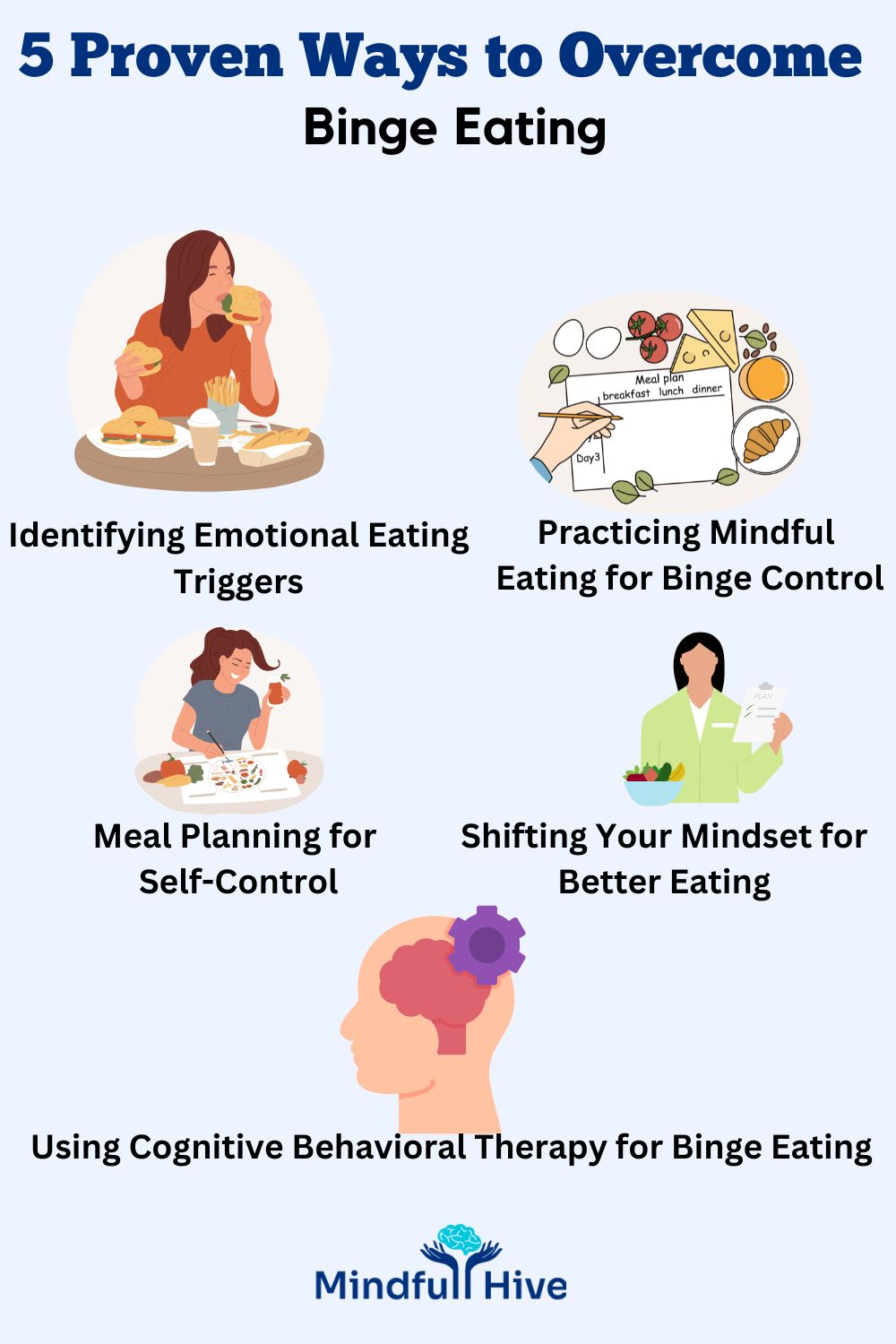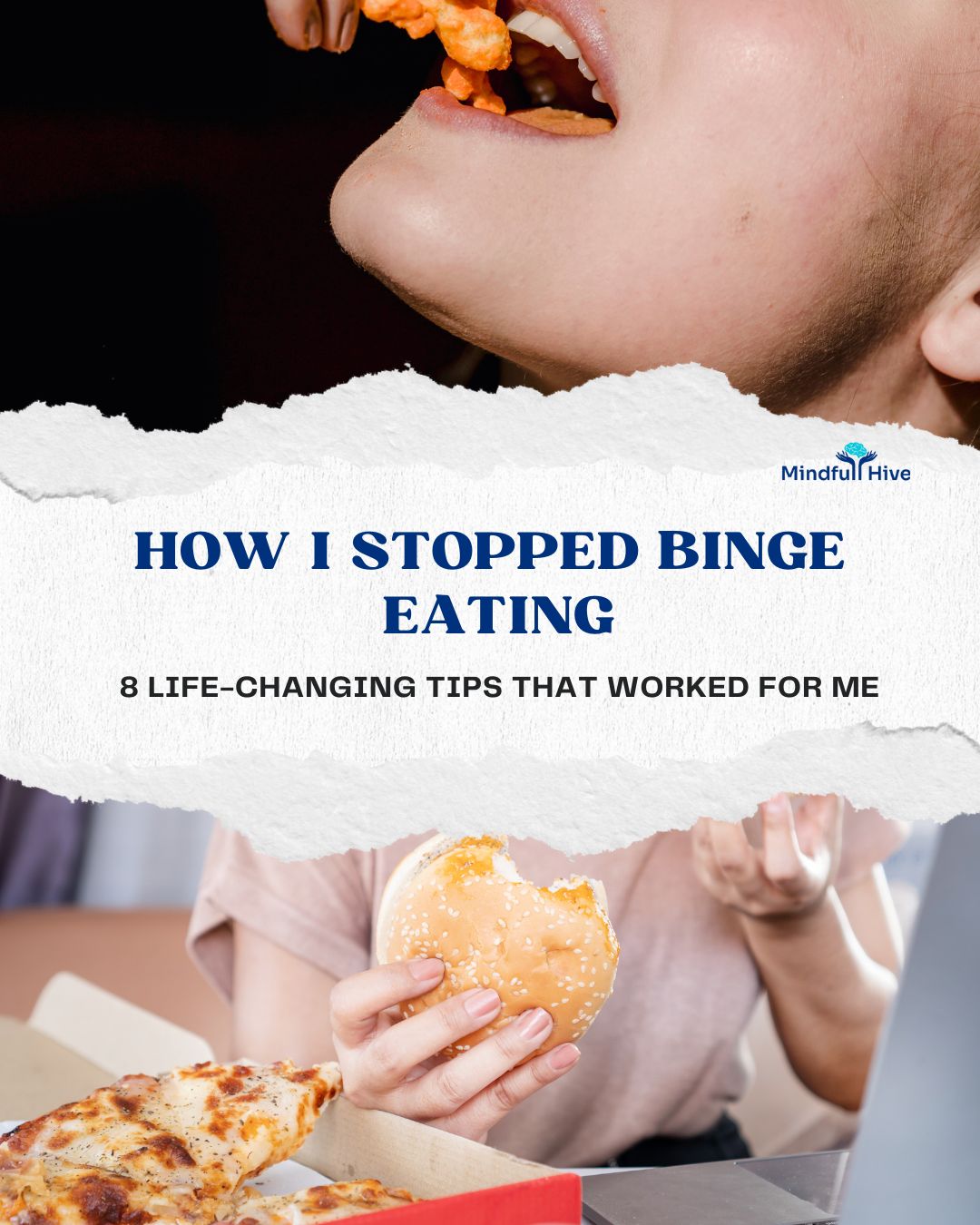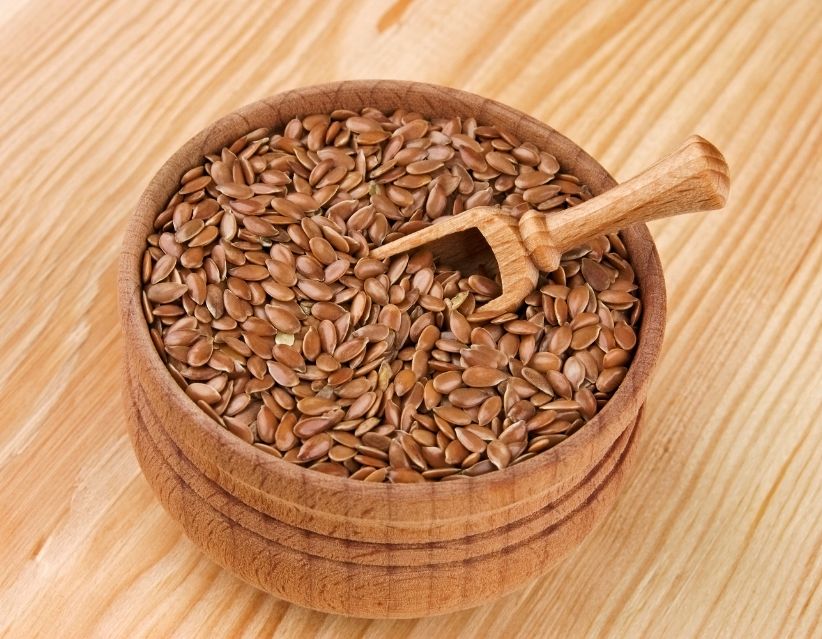Binge eating can feel like an endless cycle—one that traps you in guilt, frustration, and unhealthy eating habits. I know because I’ve been there. After struggling for years, I finally found ways to overcome binge eating and develop a healthy relationship with food. In this article, I’ll share my journey on how I stopped binge eating and recovery tips that helped me break free.
What Is Binge Eating and Why Does It Happen?
Binge eating is consuming large amounts of food in a short period, often accompanied by a lack of control. It is usually triggered by overeating triggers like stress, emotional distress, or restrictive dieting. Understanding the root cause is crucial for recovery.
8 Proven Ways to Overcome Binge Eating

1. Identifying Emotional Eating Triggers
Understanding Why You Eat
One of the biggest game-changers for me was recognizing my triggers. I realized that I wasn’t eating because I was hungry—I was eating because of stress, sadness, or boredom. This is known as emotional eating solutions, and it plays a massive role in binge eating.
How to Break the Binge Cycle
- Keep a journal to track what you eat and why.
- Identify the emotions that drive you to binge.
- Find non-food ways to cope, like meditation or exercise.
2. Practicing Mindful Eating for Binge Control
What Is Mindful Eating?
Mindful eating means paying full attention to your food—how it looks, smells, and tastes—without distractions. This simple practice transformed my relationship with food and helped me develop healthy habits to stop binge eating.
Tips to Eat Mindfully
- Eat slowly and savor each bite.
- Remove distractions (no phone or TV during meals).
- Listen to your body's hunger cues.
3. Meal Planning for Self-Control
Why Meal Planning Works
Planning meals in advance prevented me from making impulsive food choices. When you have healthy meals ready, you’re less likely to binge.
How to Get Started
- Prepare balanced meals with protein, fiber, and healthy fats.
- Stick to a regular eating schedule.
- Avoid skipping meals, which can trigger binge eating later.
4. Shifting Your Mindset for Better Eating
Developing a Positive Relationship with Food
One of the biggest lessons I learned was that food is not the enemy. Instead of labeling foods as “good” or “bad,” I started focusing on intuitive eating strategies.
How to Make This Mindset Shift
- Allow yourself to enjoy all foods in moderation.
- Avoid extreme diets that lead to restriction and binging.
- Focus on nourishing your body rather than depriving it.
5. Using Cognitive Behavioral Therapy for Binge Eating
How CBT Helped Me Stop Binge Eating
Cognitive Behavioral Therapy (CBT) helped me challenge negative thoughts about food and develop healthier eating patterns. Studies show that CBT is one of the most effective treatments for eating disorder recovery tools.
CBT Techniques You Can Try
- Identify and challenge negative thoughts about food.
- Practice self-compassion instead of guilt after eating.
- Set realistic and achievable goals.
6. Reducing Stress-Induced Overeating
Stress and Binge Eating: The Connection
Stress was a major trigger for my binge eating episodes. I learned that stress-induced overeating could be controlled through relaxation techniques.
Stress Management Strategies
- Practice deep breathing or meditation.
- Engage in regular physical activity.
- Prioritize sleep and self-care.
7. Journaling to Track Food Habits
The Power of Keeping a Food Journal
Journaling made me more aware of my eating patterns and emotional triggers. Writing down what I ate and how I felt afterward helped me recognize patterns and make changes.
What to Include in Your Food Journal
- What you ate and how much.
- The emotions you felt before and after eating.
- Any external triggers that influenced your eating.
8. Finding Support Groups for Binge Eating
You Don’t Have to Do It Alone
Support groups were a game-changer for me. Talking to others who understood my struggles made me feel less alone and more motivated to recover.
Where to Find Support
- Online forums and Facebook groups.
- Local therapy groups or 12-step programs.
- Working with a nutritionist or therapist.
Quick Tips for Overcoming Binge Eating
- Use Positive Affirmations for Self-Control – Remind yourself, “I am in control of my eating habits.”
- Try the Delay Method – When you feel an urge to binge, wait 10-15 minutes and distract yourself with another activity.
FAQs About Stopping Binge Eating
1. Can binge eating be cured?
Yes! While it takes time and effort, developing healthy habits to stop binge eating and addressing the root cause can help you regain control.
2. Is intuitive eating effective for binge eaters?
Yes. Intuitive eating strategies help you listen to your body's hunger and fullness cues rather than eating emotionally.
3. How can I control food cravings?
Cravings can be reduced by eating balanced meals, staying hydrated, and using mindful eating techniques to avoid impulsive snacking.
4. Should I avoid all “trigger foods”?
No. Completely avoiding foods you crave can backfire and lead to more binge eating. Instead, allow yourself to enjoy them in moderation.
5. What should I do if I binge eat again?
Don’t be too hard on yourself. One binge doesn’t define your progress. Reflect on what triggered it and make a plan to prevent it in the future.
Final Thoughts
Recovering from binge eating is a journey that requires patience, self-awareness, and the right strategies. By incorporating mindful eating for binge control, addressing emotional triggers, and seeking support, you can develop a healthy relationship with food. If I could do it, so can you!











